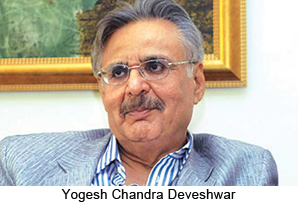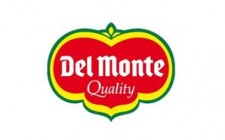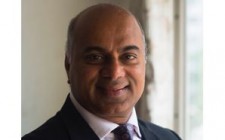ITC's journey: From cigarettes to FMCG
June 22, 2016
Deveshwar transformed the company in the past two decades. As he announces his decision to step down, he has a rich legacy to leave behind
 You don't change the general in the middle of a battle, Yogesh Chander Deveshwar had said, soon after his appointment as chairman for five years in 2012.
You don't change the general in the middle of a battle, Yogesh Chander Deveshwar had said, soon after his appointment as chairman for five years in 2012.As it turns out, the battle for ITC is continuing, and its current chairman is best suited to handle it.
Deveshwar took charge of ITC in challenging circumstances. "The early diversification efforts had either failed or were languishing, the businesses were not competitive enough in an merging liberalised economic environment and the company's reputation was at a low ebb. It was critically important, then, to create a new future for the organisation by redefining a vision that would invigorate and inject new life to every sinew of the enterprise," the company said in the notice for the forthcoming annual general meeting that would ratify Deveshwar's appointment as non-executive chairman from 2017 for a period of three years.
His current term as executive chairman ends in 2017 and many had expected him to hang up his boots.
However, the company explained that the Nomination & Compensation Committee had strongly urged Deveshwar to continue for a longer period in his present role. The company's decision is hardly surprising, given that the 'general' has had victories to his credit. Perhaps it was an all-time low for ITC when Deveshwar took charge in 1996.
The Enforcement Directorate (ED) believed ITC had inflated profits by over-invoicing imports. A massive nationwide search and seizure operation followed, in what was believed to be one of the biggest tax evasion cases of its time.
At the end of it all, ITC was left with financial liabilities of Rs 1,500 crore.
A rationalisation of business portfolio followed, with the exit from financial services, then edible oils, restaurants abroad and real estate. At one point, ITC was even one of the largest marketers of condoms for the government.
The only non-tobacco businesses of some scale that Deveshwar inherited were hotels and paperboard.
A new battle followed in a different quarter as Deveshwar decided to diversify from its core tobacco business. British multinational BAT, which was ITC's single largest shareholder wanted the company to stay in its core business.
Deveshwar, however, stubbornly made diversification his motto and created new drivers for growth in non-cigarette fast moving goods and information technology.
In the former, it has managed to create 50 brands that are growing and mostly profitable. In hotels, the company invested heavily in luxury properties across the length and breadth of the country.
The net result is around half of ITC's revenues now come from the non-cigarette FMCG business.
As ITC faces yet another challenge, with its core business facing one of the harshest tax regimes, the 'general' appears to be readying to fight another battle.
HOW A MAN CHANGED IT ALL
- ED Trouble: In 1996, when Deveshwar took charge, ED believed ITC had inflated profits by over-invoicing imports
- Biz Rationalisation: ITC exited from financial services, edible oils, overseas restaurants and real estate
- Diversification: Deveshwar created new drivers for growth in non-cigarettes FMCG and information technolgy
- FMCG: In this space, IT has managed to create 50 brands that are growing and mostly profitable
- Hotels: ITC invested heavily in luxury properties across the country
- Less smoke: Today, around half of ITC's revenues come from the non-cigarettes FMCG business
Advertisement








